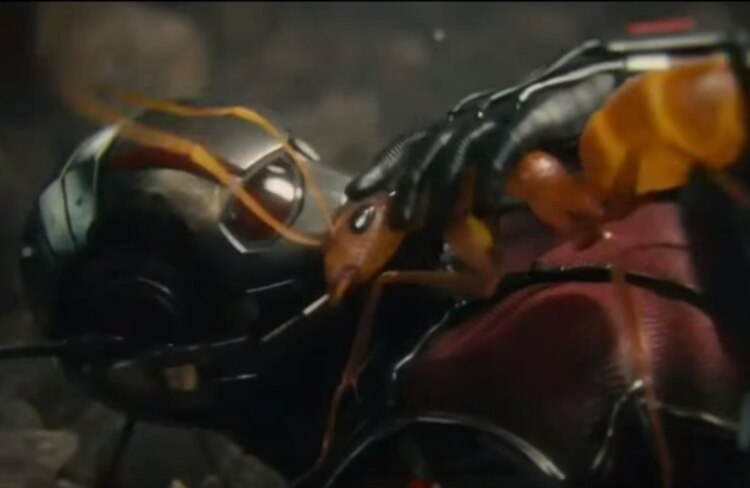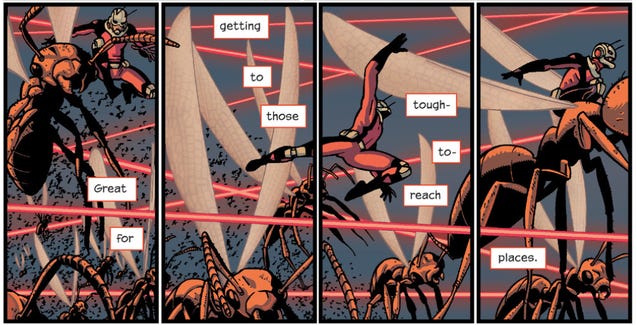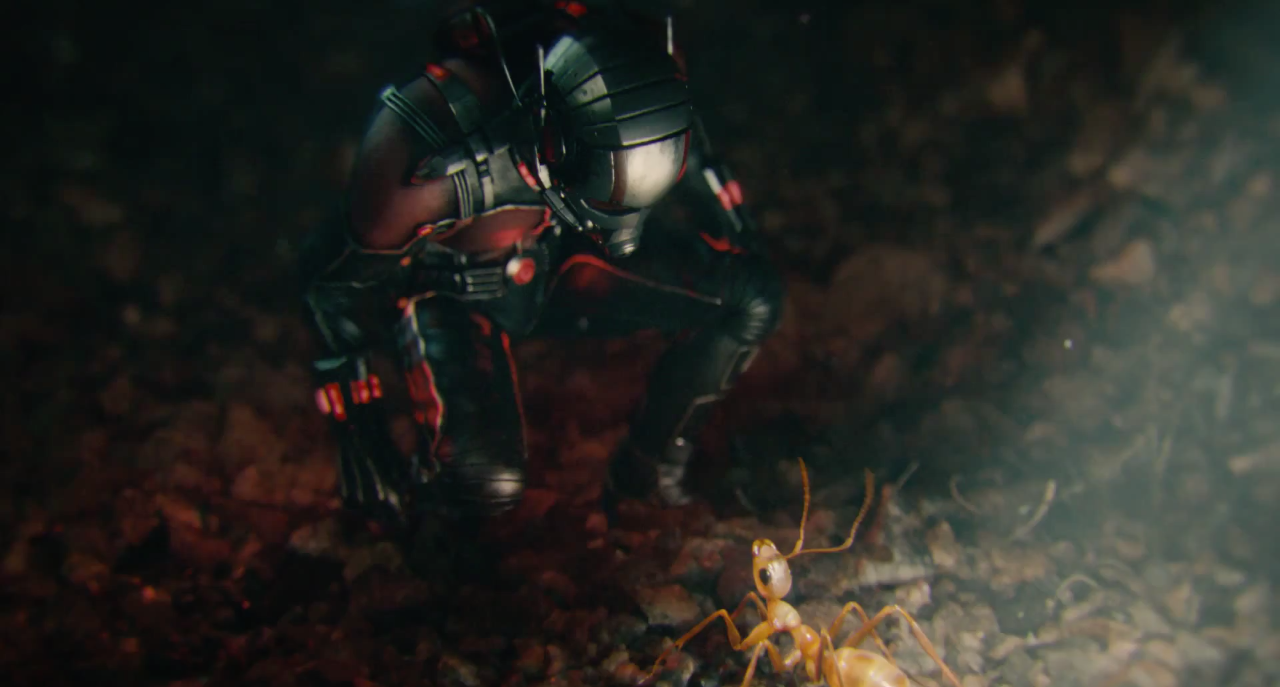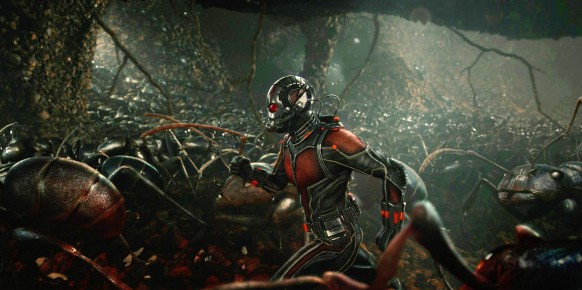A quick recap;
- I went to see Ant-Man, it was pretty good, but there were a few niggly bits that caught me regarding the ants' behaviour.
- They concentrated on 4 species; fire ants, bullet ants, crazy ants and carpenter ants. Today is crazy ant and carpenter ant time.
- There was too much Hank Pym. Boo, hiss.
Today's specialty is part two; cool critters called C cognomens*.

Hey look, a .gif with both species of the day. Fancy!
*I had to thesaurus that. Cognomen means 'nicknames".
Crazy ants
First up, we have the crazy ants. Before you ask, yes, they are actually a thing, and yes, they are called crazy ants. Obviously catering to an American audience, Marvel picked the four species most people would know of; although the UK probably laughs at this one, as they do sound like they're made up. Nylanderia fulva doesn't roll off the tongue quite as easily though.
Crazy ants are called crazy because they act very erratically when disturbed, freaking out all over the place. The ones in the film are probably Rasberry crazy ants (I am not making this up, I swear); other species within this family are Yellow crazy ants and Longhorn crazy ants.
Close encounters of the ant kind
The anatomy looks pretty much dead-on for the crazy ants if you compare with the film's screencaps, which is really nice to see. They're the smallest ants of the film, and very yellow in comparison to the others; the only ones that could get mixed up are the fire ants, although they're a bit more orangey.
Image from Youngzine.org
As you can see, they have very long legs in comparison to the others species, and are covered in short hairs across the entire body, especially the lower legs. A credit goes to the Marvel team here, as they really did study these ants and get even these small details down; you can see in the following screencap those distinctive hairs along the tarsus of the central leg.

Aw, he's adorable!
To continue on the lines of the almost-absurd nature of crazy ants, they're labelled as the ones that 'control electricity' in Ant-Man. And amazingly, it's actually true. Well, to an extent. Crazy ants don't control electricity or conduct it like they say they do, but there is a massive problem with crazy ants shorting out electrical equipment. For some insane reason they like to try and colonise the spaces inside electricals (such as plug sockets and air conditioning units), swarming inside the tiny spaces. They don't create nests, instead moving around and colonising small spaces as they go. When they all try and cram into a tiny space like the inside of a plug socket, the contact between the bodies causes the plug to short circuit between electrical contacts. It also kills all the ants. They release an alarm pheremone (probably mixed with a burning smell...) which attracts more ants, which then swarm even more, and fill up your standby computer with a lot of very antsy (see what I did there?) insects.

Not what you want to see when you're booting up for a day of Tumblr
Basically, they're pretty metal invaders. Take a moment to breathe now and thank your lucky stars they've not made it to the UK.
Carpenter Ants
Finally, we have the species that should probably be labelled as the most popular species in Ant-Man. Carpenter ants are the big guys, 'ideal for ground and air transport'. They're in the same genus as the Honeypot ant, one of the grossest (and therefore, are really fascinating) ants ever. A quick diversion; these guys gorge some workers with food, so their abdomens swell up into massive food stores (a condition called plerergate), and they can feed the rest of the colony. Ew.

They look kinda like water balloons ready to pop
Not much use to Ant-Man though. The carpenter ants that we do see, we meet one star of the show. Anthony, the loyal steed of our hero.

Yee-haw!
This bro is Anthony. Or, to be more accurately, this lady is Anthony. Or it might be Antony, I'm not entirely sure. Either way, Scott Lang calls her a boy the entire time, and she certainly is not. Anthony is actually most likely to be a queen ant; in an ant colony, there are three types of ant;
- Worker ants; these are all female (who knew, Ant-Man is actually a female dominated film, despite there being like only one human female character) and have a range of jobs.
- Male ants; these do have wings, but their sole purpose is to fertilize the female. Then they cop it. Males are fairly useless in the massive colony world.
- Queen ants; these girls are bigger than worker ants and males, have wings, and are the centre of the nest- they're egg layers, mass-producing new workers. That doesn't mean they 'control' the other ants though.
Every year, when you see the masses of ants swarming all over the ground, with winged ones in their midst; that's the day that virgin queens fly. Bees work in a very similar way; the queen picks her day, leaves the nest to fly, and all the males follow her in a big chase to be the one to mate with her.
Where are we all going again?
So you could question why all the ants follow Scott in all those neat flying scenes. He's obviously gone some of that sweet queen-in-heat pheremone stashed in his suit somewhere.
Everybody loves Anthony though, which is something you never would have expected. Ants? Ew. Ants are gross. Not when you give them a name and treat them a little bit like a giant ugly puppy! So much so, Anthony has gone big- and even managed to get a toy made of herself. Now there's a privilege restricted to pretty much every other superheroine.

Buy me like 10 for my birthday.
Okay, I think I'm done. Phew, you can stop thinking about ants now. Unless you're about to go see the film, in which case, GLHF. Have a comic before you go!




No comments:
Post a Comment